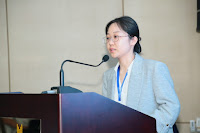Bernard Chao, Ryan Whalen, Aaron S. Kesselheim, and S. Sean Tu
The New England Journal of Medicine
Published online: November 2024
Brand-name drug manufacturers in the United States charge high prices during market-exclusivity periods, enabled by patents that block direct competition from generics and biosimilars. When bringing a generic or biosimilar drug to the market, potential competitors must avoid infringing on each patent protecting the brand-name drug by waiting for relevant patents to expire, making product-design choices to avoid overlap with patented inventions, or challenging patents and having them invalidated by a court. Successful drugs are frequently protected by a large number of often-overlapping patents, known as a patent thicket. These patent portfolios make it difficult for generics or biosimilars to enter the market and can extend market-exclusivity periods.
Under U.S. law, companies aren’t supposed to be awarded a patent if an invention is obvious, given existing knowledge. But there is one important exception...(click here to read the full text on NEJM)
.jpg)









%2018112024.jpg)